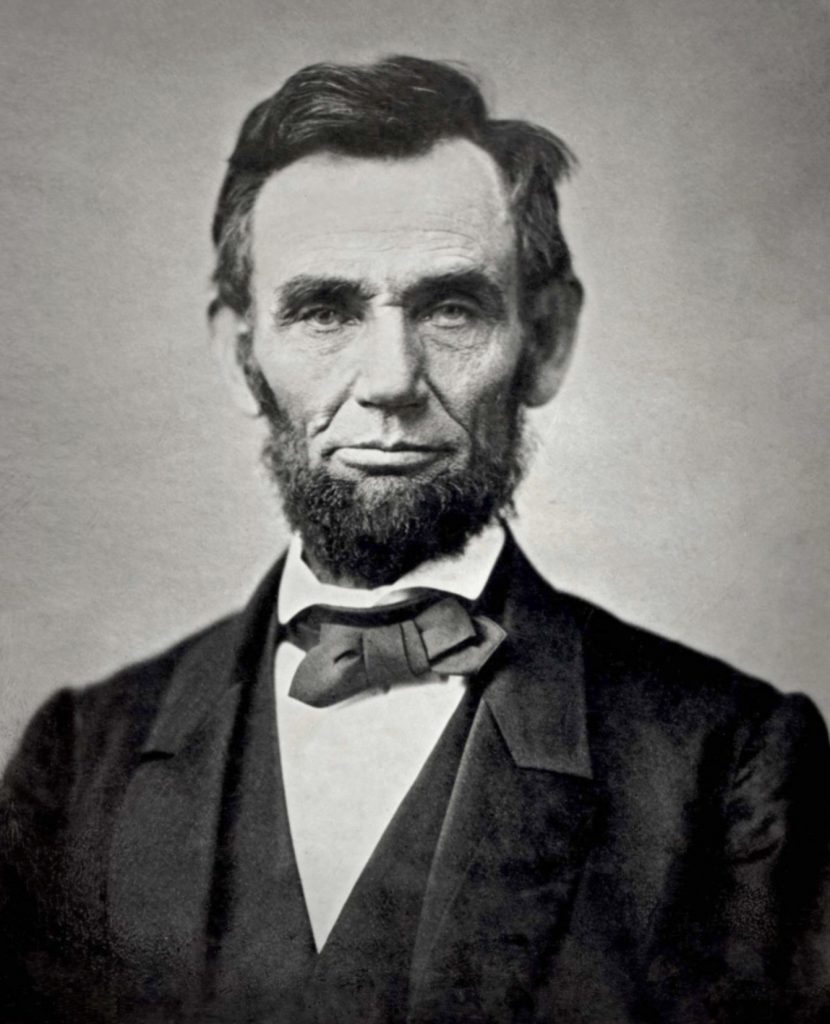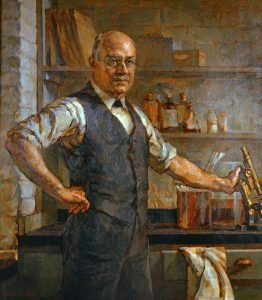Imagine being kidnapped or sold into captivity, forced into submission through violent beatings, torture, and intimidation, sold on the auction block to the highest bidder, and being forced to work for free under the most cruel conditions. And imagine that it is all perfectly legal. This was the reality for blacks who endured the horrific institution of enslavement in our nation’s early years. For enslaved blacks, it was more than being forced to work without compensation, but a way of life.
It’s 1861, and the American Civil War has just begun, with Abraham Lincoln as President of the United States. The northern States are excelling in manufacture, while the southern States, based on a system of large-scale farming, depend on the labor of African-American slaves to grow their crops. Growing abolitionist sentiment in the North after the 1830s and northern opposition to slavery’s extension into the new western territories, led many southerners to fear that the existence of slavery in America was in danger.1
On November 6, 1860 Abraham Lincoln was elected President. It was a result that outraged the southern states. The Republican party had run on an anti-slavery platform, which led the southerners to believe that they were not welcome in the Union. One month later, on December 20, 1860, South Carolina became the first southern state to secede.2 As tensions grew stronger against Lincoln, by February 1, 1861, six more states—Mississippi, Florida, Alabama, Georgia, Louisiana, and Texas—had seceded from the Union. These states formed the Confederate States of America, with Jefferson Davis, a Mississippi Senator, as their provisional president.
Lincoln felt it his duty as president to maintain the Union. Doing so, he never committed to the ending of slavery or getting rid of the Fugitive Slave Law. However, Lincoln’s comments were not enough to satisfy the Confederacy. This lead them to attack on April 12, 1861 Fort Sumter in South Carolina, which began the Civil War. To keep the Union together, Lincoln insisted that the war was not about slavery, but about preserving the Union. His words were not aimed at the southern states; however, the majority of northern white farmers were not interested in fighting for the freedom of southern slaves, nor give any African Americans any rights.3
Because there was no consistent policy regarding fugitives once the war began, the government had a difficult time deciding what to do with escaped slaves. This led to individual military commanders making their own decisions regarding the thousands of slaves seeking the protection of the Union army. On August 6, 1861, a solution was established, that fugitive slaves would be considered “contraband of war” if their labor had been used to aid the Confederacy in any way. If any were found to be in contraband, they were declared to be free, and subject to the protection of the Union army. Although the contraband slaves were declared free, Lincoln insisted that the purpose of the war was still to save the Union, not to free slaves.4 The occasion for changing this stance came about as a result of the Battle of Antietam.
The battle had taken place near Antietam Creek in Sharpsbug, Maryland. On September 16, 1862, the Confederate Army and the Union Army both contributed to the bloodiest day in American history, with 23,000 casualties. No other single day in American history before or since has been so deadly. Nearly one out of every four soldiers engaged was a casualty: killed, wounded, or captured. The violent fighting would be remembered by many who were there as the most intense of the war. Until the Battle of Antietam, the Confederate army had been focusing on a defense strategy. The majority of their major battles had all been fought on Southern soil. However, after the achievement of the Second Battle of Bull Run, General Lee had decided that it was the appropriate time to start focusing more on their offense than defense. It was September 3, 1862, when the Confederate army, led by General Robert E. Lee, entered the state of Maryland. Their hope was to invade the north all the way to Pennsylvania. Both General Lee and Jefferson Davis, Confederate President, believed that a successful invasion would convince France and Great Britain to officially recognize the Confederacy as a nation, and perhaps even enter the war on their behalf. The Union held off the invasion of the Confederacy at Antietam, although President Abraham Lincoln was not satisfied that the Confederates were able to retreat back to Virginia. However, the battle was declared a Union victory and Lincoln followed the battle with the Emancipation Proclamation, which officially made slavery a second cause of the war.5
On July 22, 1862, Lincoln read a draft of the preliminary Emancipation Proclamation to his cabinet. On this document, it announced “…that all persons held as slaves within said designated States, and parts of States, are, and henceforward shall be free; and that the Executive government of the United States, including the military and naval authorities thereof, will recognize and maintain the freedom of said persons.”6 Secretary of State William H. Seward was on board with Lincoln, but persuaded him to wait until the Union had had a victory before issuing the document. After the Union victoriously won the Battle of Antietam, it was time for Lincoln to issue the preliminary Emancipation Proclamation on September 22, 1862. It warned the Confederate states to quit the war and surrender by January 1, 1863, or their slaves would be proclaimed freed. Lincoln was giving the South a choice: end the war now and keep your slaves, or keep fighting and risk losing the war and the institution of slavery. However, many argued that the proclamation didn’t actually free any slaves or destroy the institution of slavery itself—it still only applied to states in active rebellion, not to the slave-holding border states or to rebel areas already under Union control. In reality, it simply freed Union army officers from returning runaway slaves to their owners under the national Fugitive Slave Act of 1850. Despite all opposition, Lincoln was firm and officially pronounced the Emancipation Proclamation on January 1, 1863.”That on the first day of January, in the year of our Lord one thousand eight hundred and sixty-three, all persons held as slaves within any State or designated part of a State, the people whereof shall then be in rebellion against the United States, shall be then, thenceforward, and forever free.”7 Those words were issued by Abraham Lincoln on the final draft of the Emancipation Proclamation. In the midst of the struggle, Lincoln drafted his Emancipation Proclamation, calling for the freedom of the slaves. Months later, in November, he delivered his most famous speech, the Gettysburg Address. This speech summed up the principles for which the federal government still fought to preserve the Union.8

The purpose of the Civil War changed during the war. The North was not only fighting to maintain the Union, as it had at the beginning of the war, but it was also fighting to end slavery. African Americans rushed to enlist, once the proclamation was established. The Union army eventually consisted of over 179,000 African-American men that served in over 160 units. The 179,000 men both included free African Americans from the North and runaway slaves from the South who enlisted to fight. Even though there had been African Americans who had served in the army and navy during the American Revolution and in the War of 1812, none were able to enlist due to a 1792 law that stripped them from bearing arms in the U.S. Army. President Abraham Lincoln also had concerns over accepting African American men into the military, too. Doing so might persuade border states like Maryland, Kentucky and Missouri to secede. Black soldiers faced discrimination as well as segregation into “Black” units, and some only earned $7 per month, plus a $3 clothing allowance, while white soldiers commissioned $13 per month, plus $3.50 for clothes.9
On April 18, 1865, the Civil War ended. The Confederate army surrendered to the Union army. Approximately 620,000 Americans died in the four-year war, with tens of thousands injured. In January 1865, a new chapter in American History opened as the 13th Amendment was passed, which officially abolished slavery in the United States and freed more than four million African Americans. More importantly, the 14th Amendment was passed in June 1865, which granted citizenship to all people born in the United States, and for the first time, granted citizenship to all former slaves. In 1869, the 15th Amendment was passed, which guaranteed the right for any American male citizen to vote no matter what their race. The Civil War was a significant event in United States history. It showed that the North’s victory proved that democracy worked. Also it was a huge step for the African-American people, to fight for what they deserved…freedom.
- “The Emancipation Proclamation,” Emancipation Proclamation (Primary Source Document) (August 2017): 1. ↵
- Brian Lamb and Susan Swain, Abraham Lincoln Great American Historians on our Sixteenth President (New York: Public Affairs, 2008), 56-61. ↵
- Allen C. Guelzo, Lincoln’s Emancipation Proclamation: the end of slavery in America (New York: Simon & Schuster, 2004), 90-100. ↵
- Allen C. Guelzo, Lincoln’s Emancipation Proclamation: the end of slavery in America (New York: Simon & Schuster, 2004), 159. ↵
- James M. McPherson, Crossroads of freedom: Antietam (Oxford, New York: Oxford University Press, 2002), 68-72. ↵
- “The Emancipation Proclamation,” Emancipation Proclamation (Primary Source Document). ↵
- “The Emancipation Proclamation,” Emancipation Proclamation (Primary Source Document). ↵
- Salem Press Biographical Encyclopedia, January 2015, s.v. “Abraham Lincoln,” by Joseph E. Suppiger. ↵
- Brian Lamb and Susan Swain, Abraham Lincoln Great American Historians on our Sixteenth President (New York: Public Affairs, 2008), 74-75. ↵



56 comments
Hali Garcia
This is a great article. When I was in high school we were always taught that the Emancipation Proclamation freed all slaves and the Civil War was solely about slavery, but that was not the case. Now I know that the Emancipation Proclamation gave the South a choice, they could keep their slaves but they had to stop fighting or keep fighting and lose their slaves.
Felicia Stewart
This article was a great lead and it was very informative! I believe it really provided new information to me that not only was Abraham Lincoln’s goal to abolish slavery but to also end the war. The emancipation proclamation is one of the most critical moments in history that had a major impact on, and helped, many people within the United States. I believe that Abraham Lincoln really wanted to bring the nation together and make it stronger.
Gabrien Gregory
The author presents a well-written article about a serious and complicated subject in American history. President Lincoln, in my opinion, is the most significant president in presidential history because he had to deal with an entire Civil War, all while pushing for emancipation and eventually, the passing of the 13th Amendment of the Constitution. Lincoln knew what needed to be done for the sake of humanity, whether everyone agreed or liked it or not.
Matthew Wyatt
President Lincoln was a brilliant political strategist, invoking the concept of abolition only when it most benefitted his effort to preserve the Union. An important point that the final paragraph of this article glosses over: the 13th Amendment was passed before the war officially ended. Lincoln knew that, despite the fervor that the Emancipation Proclamation had inspired, the political will to ensure an abolition of slavery would dissolve the moment the war ended. He, therefore, exhausted considerable political capital to ensure passage of the 13th Amendment early in his second term. This action likely cost him his life, but ensured that slavery would no longer be a stain on the American tapestry.
Sienna Guerra
This document of the Emancipation Proclamation in the reason African American people began to see the light that was coming in order to live the life they had been praying for throughout their time in slavery. Abraham Lincoln issued this freedom of slavery that did cause uprisings from commoners that did start war but this is important to know and honor today that many are out of that past and into new still fighting but with more leeway.
Christopher Hohman
Nice article. I also think that the issue of the Emancipation Proclamation was a shrewd diplomatic move on the part of Abraham Lincoln. At the time before the EP France and Great Britain were both helping the Confederacy even though they did not actually put armies in the field. Both France and the UK had a nobility that sympathized with the South’s way of life. However, the commoners despised slavery and so when Lincoln issued the EP making the war also about slavery, France and the UK had to back off so as to not anger the commoners in their countries
Edgar Ramon
The emancipation proclamation was truly one of the most important documents in American history. Since slavery I do believe we’ve made strides towards greatness. If you think about it, the shaming of slavery was a miracle in ways, because for millennia it had been held to view as a symbol of nobility or power. I say the shaming because there are still places in the world that do not prohibit slavery, and they should catch on with the times. Good article!
Miguel Camarillo-Cohen
This article provides the reader with an excellent understanding of how President Lincoln passed three important laws. President Lincoln freed all slaves. The Passage of the Emancipation Proclamation is considered one of the most important laws passed in America’s history. Moreover, the 14th Amendment passed which granted all people born in the US citizenship. It was granted to all former slaves. Four years later, in 1865, the 15th Amendment passed which granted Black men the right to vote.
Rafael Lopez-Rodriguez
I was reading a book for my SMC Ethics class and we talked about the Gettysburg Address related to this and in one part of the speech it says: “Now we are engaged in a great civil war, testing whether that nation, or any nation so conceived and so dedicated, can long endure.” And by nation I think he means the north and southern states to be able to unite as one nation. The civil war was a turning point and I did not know that Lincoln at first did not want to abolish slavery. Glad it did because it was a big step for African-Americans in the US.
Alexandra Lopez
The cover photo for this article is beautiful, completely pulled me in. This article was very clear and easy to understand. There were lots of misconceptions that were cleared up. Abraham Lincoln is one of the most read and touched upon hero/president in all of history. His contributions to the people have truly shaped the world today. Imagine if he had not gone through with the Emancipation Proclamation, how even more disastrous the world would be today. He made the nation stronger and more united, a real hero in nearly everyone’s eyes. This article was very well-written and extremely informative. I enjoyed reading it.